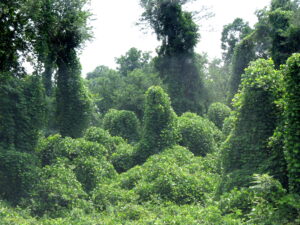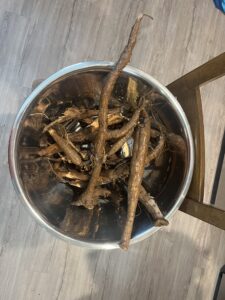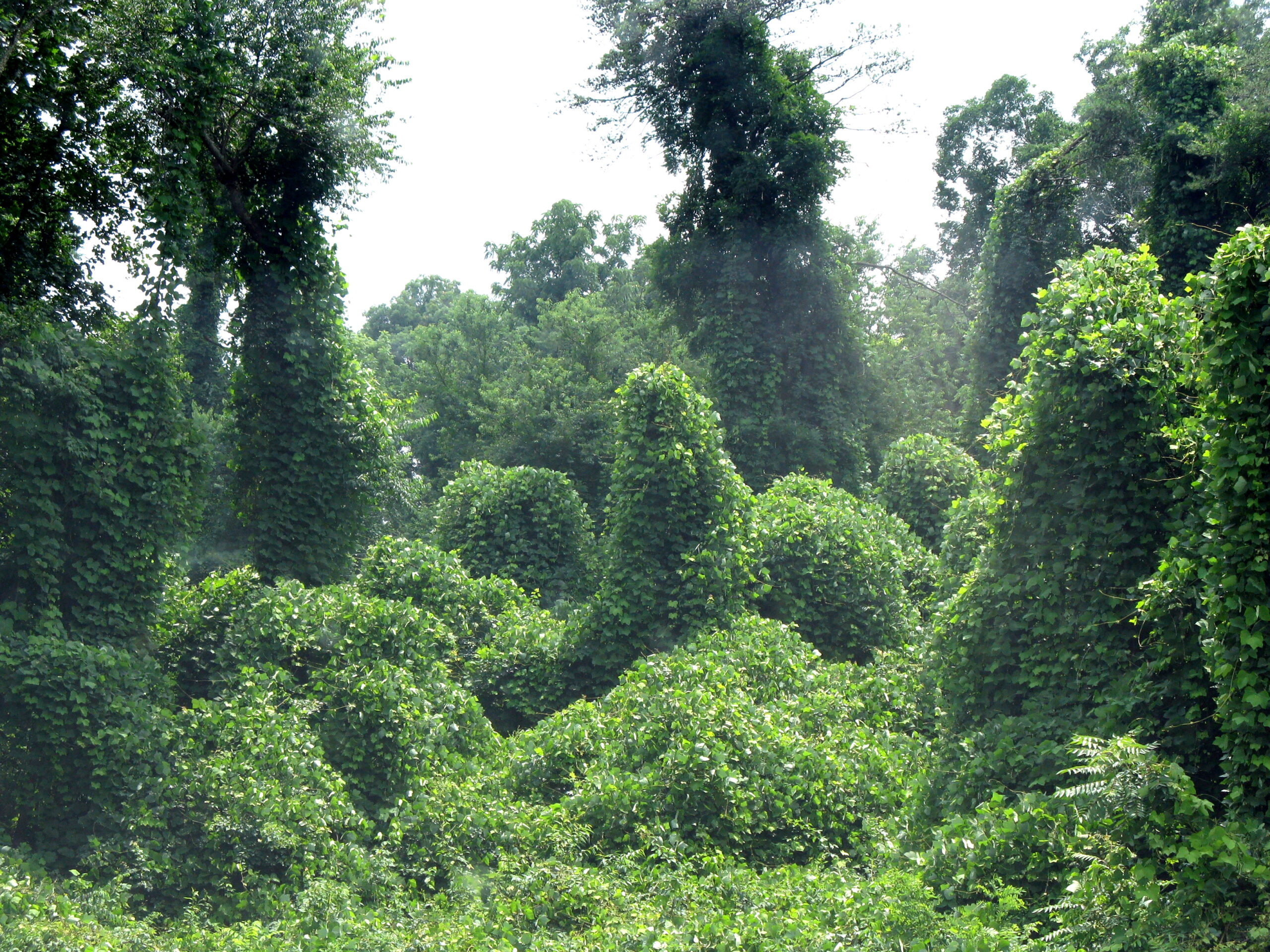by Senna Jenkins ’25
My name is Senna Jenkins, and I am working on a project that could potentially help incentivize kudzu eradication. Kudzu is an invasive, vining plant species that grows rapidly, consuming and smothering any plants and trees in its wake.
Originally introduced from China, the plant is most pervasive in the Southeastern United States, where it was planted as a solution for soil erosion. Unfortunately, the negative effects of kudzu on surrounding vegetation and wildlife far outweigh any potential benefits this plant had to offer here. In our region, kudzu is often seen along the roads and hillsides of Eastern Kentucky, consuming old homesteads and forest land.

Kudzu’s deep root system and rapidly growing vines make it difficult and costly to eradicate and prevent it from spreading. Furthermore, the plant itself has little large-scale utility, so the only incentive to control the plant is for environmental concerns and the need for land use where kudzu has taken over. However, in kudzu’s native habitat, its roots are harvested for cooking starch, similar to corn starch is commonly used in the United States. For my senior capstone project in Engineering Technologies and Applied Design, I’m trying to find out if these starches can be converted into sugars to be utilized for ethanol production. The methods I am using involve malted barley for starch conversion and yeast for fermentation and ethanol production- the same methods that are used to make corn-based ethanol. So far, I have not concluded whether these methods are effective on kudzu for ethanol production.


The process of digging kudzu roots for eradication is, with no doubt, labor-intensive and time-consuming. If kudzu starch can be feasibly used as a bioethanol feedstock, it’s not expected to be the next “cash cow”, nor be nearly as economically efficient as the standard production of corn ethanol. However, it could be a means of recovering the costs necessary for eradication. The goal of this project is to create a helpful byproduct from kudzu eradication to help recover the costs incurred by removing it. If kudzu is found to be useful in this way, it could help to incentivize its extermination.

